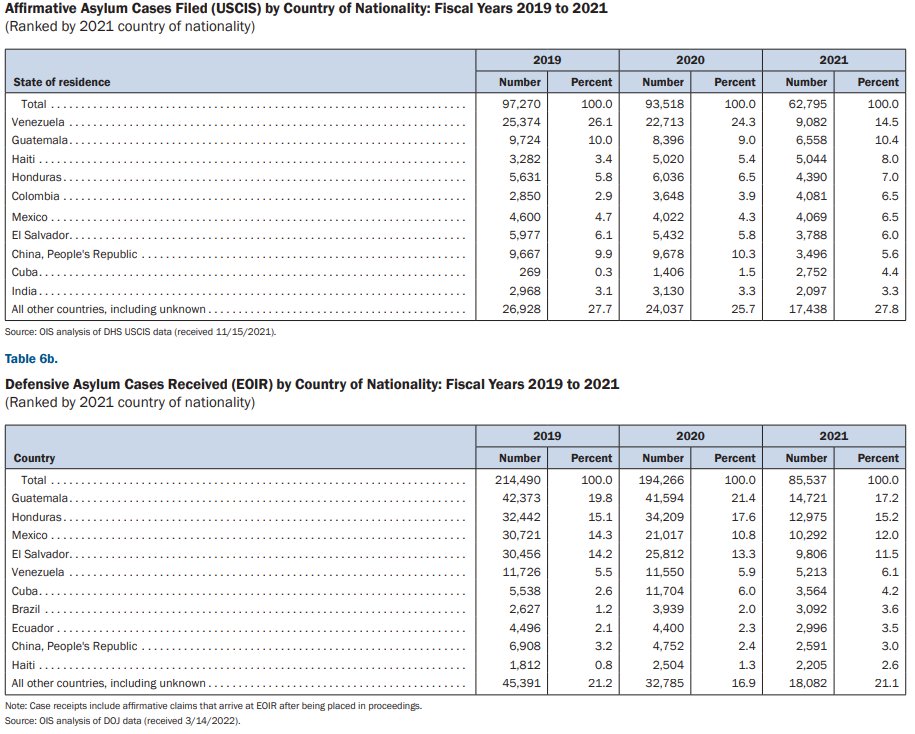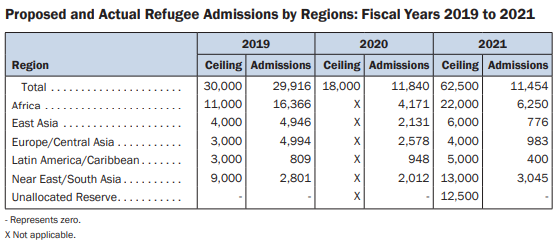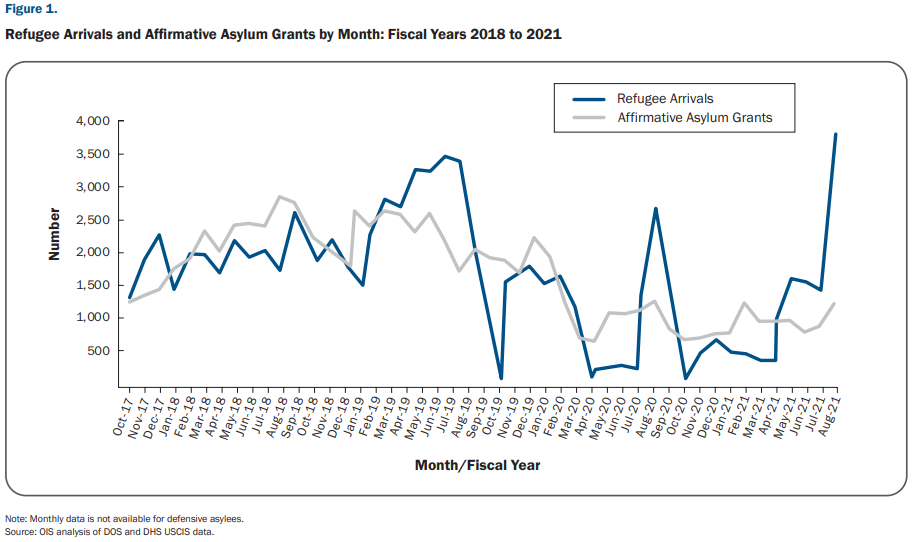
 This story is part of an occasional Granite State News Collaborative series focusing on immigration issues and the experiences of immigrants settling in New Hampshire, including what it’s like seeking asylum here and finding work as an immigrant — the challenges involved, as well as efforts underway to help remove barriers and create more opportunities for advancement.
This story is part of an occasional Granite State News Collaborative series focusing on immigration issues and the experiences of immigrants settling in New Hampshire, including what it’s like seeking asylum here and finding work as an immigrant — the challenges involved, as well as efforts underway to help remove barriers and create more opportunities for advancement.
For those seeking asylum in the United States, the process can be long and fraught, involving multiple government agencies and, sometimes, detention while they await decisions on their applications.
That does not sit well with Judith Reed, co-founder of Project Home.
“Our conviction is that it isn’t necessary or even right for people to be in detention when they’re just asking for asylum. That doesn’t make sense to us. So we thought, if they’re not going to be in detention, then where will they be? Well, they’d be in our communities.”
With this in mind, Reed and a group of like-minded residents in the Keene and Peterborough area set out to establish host homes for asylum seekers. They are currently involved in cases involving asylum seekers from Rwanda, Mexico, Honduras, and El Salvador. Project Home is part of the NH Host Home Network, a statewide network of volunteers who offer shelter and support, providing an alternative to detention.
Asylum seekers are screened upon arriving in the U.S. or at a point of entry, such as along the southern border, which has been experiencing historically high border crossings. If immigration officials determine that they may have suffered persecution or have reason to fear persecution based on race, religion, nationality, membership in a particular social group, or political opinion, they are permitted to pursue asylum.

If unsuccessful at the screening stage, asylum seekers may request reconsideration or judicial review. They may be held in detention during this time or released. If they have a home to go to, they may have a better chance at release.
It’s a complicated legal process that continues to shift based on administration policy, litigation, and international affairs. Yet most asylum seekers lack legal representation, according to Maggie Fogarty, NH program director for the American Friends Service Committee, a Quaker-founded organization that works on peace and justice issues, including immigration-related efforts, such as helping to build a network of host homes for asylum seekers.
Given the often dire circumstances that may have prompted their journeys, asylum seekers don’t necessarily show up with stacks of documents proving their case. “It’s so hard to make a good case on your own,” Fogarty said. “Not only do people not show up with their evidence, but they also show up traumatized and very often experiencing tremendous shame for what happened to them – sexual violence, for example,” she said.
And that shame can lead to a certain reticence that can be held against them, she suggested. “They might be asked at the border, `Why are you here?’ and their answer is, ‘To seek a better life,’ and then the fact of that gets registered as, ‘Oh it’s just economic migration, that’s not asylum,’ she said. “Their words can be used against them.”
Paul Introcaso helps organize host homes in the Nashua area. “These people are walking thousands of miles to get here, so they’re desperate,” he said. “Women with children in their arms, just trying to get through the next day.”
Introcaso also helps raise bond money. “One of the prerequisites is they have to have a place to go,” he said. “That was one of the legal things that ICE (U.S. Immigration and Customs Enforcement) required. But also it just made sense that they do have to have a place to go.”
Bonds have ranged from $1,500 to $20,000, he said. “It’s costly,” he said. “It kind of sends the wrong message to the public about these people. And it’s obviously damaging for them. Being in prison for a year and a half can’t help you.”
An asylee who now lives in Manchester was released from detention after volunteers raised $10,000 in bond money. He had been in detention for a month. He said he fled his country in Africa because of discrimination due to his tribal affiliation. The asylee, who was granted asylum in March 2020 after two years in the U.S., did not want his name or country of origin used, given concerns for his family’s safety while they await approval to join him here.
He met Maggie Fogarty while at the Strafford County Department of Corrections. “They decided they had to take me out of that place,” he said. “They sent me a lawyer,” he said. “They organized for me a host family – a couple, angels, good people.” He lived at the NH couple’s home for about six months. “They did a lot for me,” he said. It was a chance, he said, “to breathe in peace.”
He worries, however, about his family, which he is working to bring to the U.S. He said he moved his family to another African country, which is a “little bit more secure than my country.” Even with the help of a good lawyer, he said, “everything is taking too long.” Still, he is hopeful, he said, that they will be here soon.
A system in flux
Meg Moran, staff attorney with New Hampshire Legal Assistance, handles the Removal Defense Project and works with non-citizens, including asylum seekers who have been detained for various reasons. In some cases she helps them present their “credible fear” cases to asylum officers, as well as present their cases to immigration judges for protection against removal from the U.S.
“If I’m working with someone before an asylum officer screening I’m very much helping them prepare their case, not just for the interview, but in anticipation of the full adjudication, because if they don’t get a favorable determination we have a very, very tight window to appeal to a judge to have it reconsidered,” she said.
Asylum officers are familiar with the conditions in asylum seekers’ countries of origin, she said. “And they are trained to interview them to elicit the information they need in order to evaluate whether they may have a case for asylum,” she said.
“Generally someone will describe the harm they’ve suffered in the past and they’ll answer questions about what they know or what they believe was the reason why they were targeted for that harm,” she said.
In some cases, she said, “there’s something happening in their country which now raises the specter of harm in the future, so they will describe that.” For example, she said, many Afghans visiting or studying in the U.S. found themselves needing to apply for asylum after the fall of the Afghan government to the Taliban last year.
Moran represents people with humanitarian immigration issues, such as those fearing persecution or torture in their home countries, survivors of persecution, torture, human trafficking, domestic violence and other crimes, as well as people seeking humanitarian parole or temporary protected status in the U.S. She also represents young people who came to the U.S. as children, often traveling here on their own to escape extreme violence and other harm.
Detention policies have been subject to change, Moran said. “It’s a very evolving situation,” she said. “The current administration’s policy is not to detain everybody,” she said. Typically, mothers with children are released.
Still, plenty of people are detained – for hours, weeks, months, or years, she said. “It can be random because it can depend on variables day to day,” she said. For instance, it can depend on available detention capacity, she said, as well as the capacity to make a prompt determination about whether someone is going to be able to remain to apply for asylum or be removed from the U.S. expeditiously.
Another factor: host homes. An immigration judge or ICE official might be more inclined to release someone who has a place to live. With this in mind, lawyers sometimes reach out to organizations like the NH Host Home Network seeking a place for their clients to stay, Moran said.
“That’s why the work of supportive people in the community willing to raise bond money and open their homes is so critical,” she said. Often a judge will ask for information on a host’s residence, employment, and legal status, she said.

Source: OIS analysis of DOS data. Graphic/U.S. Office of Immigration Statistics
Offering shelter, providing a path to independence
Becoming a host involves several steps, according to Judith Reed. “We explain the process, give them materials, a video to watch. If they want to do it, we do a home visit and an interview with them,” she said. “Before a new family comes, we would find out everything we can about them and start putting a team together so that it’s all ready to go when they arrive.”
A team of volunteers helps in various ways, taking people shopping, introducing them to the town and region where they live, arranging for medical care and helping with school systems if children are involved. “There’s lots of driving people to their appointments, to their English classes,” she said. “That means the host can focus on the home and if there are any issues between the host and the guest. or problems that the host and guest can’t solve together, then the team leader can step in and help out with that. So it’s really a very solid system.”
The goal, she said, is to get guests to the point where they can be independent. That can be a challenge in part because of the often prolonged waiting period for a work permit. The system is backlogged, according to many involved with asylum seekers.
MaryAnn McHugh opened her home in Nashua to a woman from Cameroon who had experienced a series of misfortunes after arriving in the U.S. as an asylum seeker. McHugh’s letter to an immigration judge helped lead to her release from detention. “It was good for her to get out of jail at least. She was under a lot of stress,” McHugh said. “She didn’t have a lot of hair, and she said it wouldn’t grow because of the stress.”
Among the challenges: raising money for an immigration lawyer and awaiting work authorization. “She couldn’t do anything. Luckily, she stayed healthy because if she hadn’t, we’d have had to figure that out,” she said. “She was very careful to keep her apartment clean and neat,” she said. “And she tried very hard to be a good guest, and she was a good guest.”
Certain cultural differences, “the unexpectedness of just little things,” took some time to understand, she said, such as food preferences. “The real upside is that I know we helped her get out of prison and get started on a better path,” she said.
The Upper Valley host home organization, SHARe (Supporting and Helping Asylees and Refugees), has supported more than 20 asylum seekers and refugees since 2020, including a trans woman from Guatemala, a Cuban man fleeing persecution for political reasons, and a family from Mexico that arrived about three weeks ago.
The group is also supporting a woman from Africa who is fleeing political violence. She filed her case six years ago and is still awaiting a hearing. “They can grant her asylum at that administrative hearing,” said William Ploog, chair of the board of SHARe. “If that’s what she hears when her day comes, that would be fantastic, but if they deny it, then she has an appeals process, which goes through the immigration court system,” he said.
Another local asylum family from Haiti has been waiting eight years for a hearing, he said. “It’s not unusual to find asylum seekers who have been here for years,” he said.
As Maggie Fogarty sees it, offering to host an asylum seeker is “a simple, fundamental act of compassion,” she said. “There’s a critical need to help people who have no contacts in the U.S.”
And for some who are granted asylum, a new phase awaits: seeking to bring family members here. “For those whose loved ones are back home still, they’ve won some critical gains for themselves,” Fogarty said. “But what does that feel like when you’re still worried that your wife and children are fleeing their village at night?”
Meg Moran has had clients who waited many years to reunite with their minor children after gaining asylum. “When they are granted asylum, their spouse and minor children are eligible to join them in the U.S.,” she said. “But it can take an extraordinarily long time for their applications and consular processing to conclude.”
For Moran, a tour of the National Visa Center in Portsmouth served as a stark reminder of how U.S. immigration policies keep many families separated for many years, sometimes decades. “Some of the rooms are like airplane hangers, full of multi-tiered cabinets,” she said. In those cabinets are many thousands of approved applications for immigrants whose entry to the U.S. is on hold for various procedural reasons, including limits on the number of eligible immigrants allowed to come here. “It’s astonishing how many people are waiting,” she said.
Though political will to overhaul the immigration system on a large scale remains elusive, the Bipartisan Border Solutions Act, co-sponsored by U.S. Sen. Maggie Hassan, takes a targeted approach. Among its provisions: establishing pilot programs addressing the asylum process and establishing several regional processing centers along the southern border.
The bill’s opponents include the ACLU, which, although recognizing some “positive provisions,” faulted the bill for working within “the failed framework of deterrence and detention designed to short-circuit due process.” A group of House Republicans, meanwhile, announced a set of border security policies in July that include “strengthening the asylum process” and “building the Border Wall.”
 This article is being shared by partners in the Granite State News Collaborative as part of our Race and Equity Initiative. For more information visit collaborativenh.org.
This article is being shared by partners in the Granite State News Collaborative as part of our Race and Equity Initiative. For more information visit collaborativenh.org.








